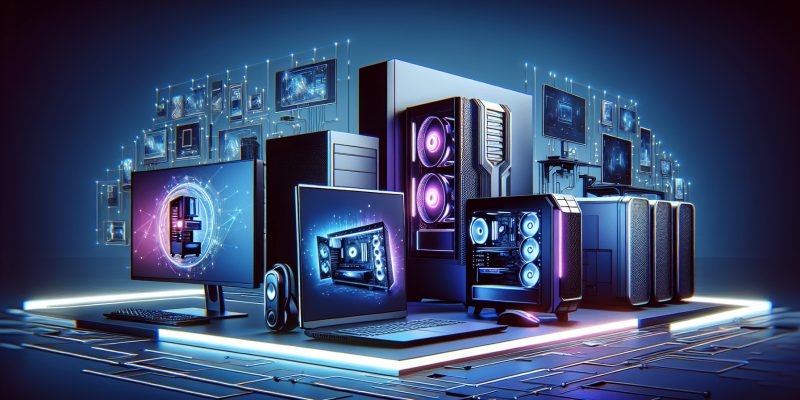Artificial Intelligence (AI) is no longer a futuristic concept but a reality that is transforming the world around us, especially in the computing realm. The integration of AI into computer systems has revolutionized how we interact with technology, creating smarter and more efficient machines. From personal assistants to automated data analysis, AI is reshaping the computing landscape in profound ways. This article explores how AI is influencing and transforming the world of computing.
AI and Computing: The Synergy
In recent years, the relationship between AI and computing has become increasingly intertwined. AI relies heavily on advanced computational power to process vast amounts of data, learn from it, and make decisions. High-performance computing systems, such as supercomputers and cloud computing platforms, provide the backbone necessary for AI technologies to thrive.
Machine learning (ML), a subset of AI, is one of the most significant breakthroughs in computing. Through ML, computers can analyze patterns in data and make predictions or decisions without being explicitly programmed. This ability has enabled innovations like self-driving cars, facial recognition software, and recommendation systems on platforms like Netflix and Amazon.
Revolutionizing Industries with AI-Driven Computing
AI-powered computing has had a transformative impact on various industries, streamlining processes and unlocking new possibilities. For example, in healthcare, AI algorithms are being used to analyze medical images, diagnose diseases, and predict patient outcomes more accurately than human doctors in some cases. By processing large volumes of health data, AI can provide insights that were once unimaginable, leading to faster diagnoses and personalized treatments.
In the financial sector, AI is enhancing fraud detection and risk management. Banks and financial institutions employ AI to monitor transactions in real-time, identify suspicious activities, and improve security. AI’s ability to analyze large amounts of data at lightning speed has drastically improved decision-making processes in finance.
The entertainment industry is another example where AI-driven computing is having a significant impact. AI is now used to create personalized recommendations based on a user’s preferences, enhancing the streaming experience. Algorithms predict the kinds of content users will enjoy, boosting engagement and making services like Netflix and Spotify much more appealing to consumers.
AI in Hardware: Smarter Machines
The integration of AI into hardware has also made significant advancements. AI chips, like those developed by companies like Nvidia, Google, and Intel, are designed specifically to handle the computational load of AI tasks. These chips enable faster data processing and more efficient learning, allowing devices like smartphones, laptops, and even home appliances to execute AI-powered tasks.
For example, smartphones equipped with AI chips can offer features such as real-time translation, enhanced photography, and intelligent voice assistants. These advancements have made AI a more integrated part of our everyday lives, improving how we interact with our devices.
Challenges and Ethical Considerations
While AI has immense potential, its rapid development has raised concerns regarding privacy, job displacement, and ethical implications. The ability of AI to analyze personal data has sparked debates about data security and user consent. Moreover, as AI systems take on more tasks traditionally performed by humans, concerns about job losses in fields like customer service, transportation, and manufacturing have emerged.
Ethical considerations around AI decision-making are also critical. AI algorithms are only as good as the data they are trained on, and biased or flawed data can result in biased outcomes. This issue has highlighted the importance of transparency, fairness, and accountability in AI systems.
The Future of AI and Computing
Looking ahead, the role of AI in computing is expected to expand exponentially. As AI algorithms continue to evolve, they will become even more adept at solving complex problems across a range of fields. AI’s potential in autonomous systems, such as drones and robots, promises to revolutionize industries like logistics and manufacturing.
Furthermore, as quantum computing becomes more viable, AI will likely play a crucial role in unlocking its full potential. The combination of AI and quantum computing could lead to breakthroughs that were once thought to be impossible, from solving complex scientific problems to revolutionizing cybersecurity.
In conclusion, artificial intelligence is already transforming the computing world, enhancing how machines process data, make decisions, and interact with users. As AI technology continues to evolve, its integration with computing systems will continue to shape industries and redefine how we interact with the digital world. However, with these advancements come important ethical and societal challenges that need to be addressed to ensure AI serves humanity’s best interests.
